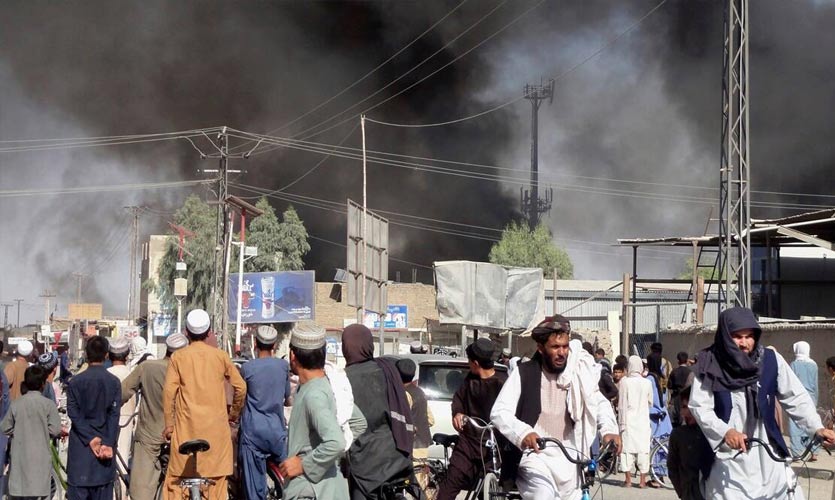Since the Taliban took over Afghanistan on August 15, the country has only spiralled into deeper crisis. It currently faces extreme poverty, drought, economic collapse and human rights violations. As the ruling government, the Taliban are now tasked with providing security, food, health and economic prosperity, irrespective of people’s ethnicity or religious affiliation.
With Afghanistan’s shattering economy in the backdrop, the militant regime continues to seek international legitimacy. Sectarian sentiments prevailing within the country, however, have potentially limited any chance it may have had at recognition. Under the Doha agreement, the Taliban had promised the United States that Afghan soil would not become a haven for terrorist groups threatening the US or its allies. But the situation on the ground is completely different.
The sudden increase in Islamic State – Khorasan Province (IS-KP) attacks on Taliban affiliates and Afghan citizens, especially on minorities like Shias, highlights the imminent threats posed by the jihadist outfits. On October 15, a deadly blast at a Shia mosque in Afghanistan’s Kandahar province killed over 60 worshippers and injured more than 80. As per a Khaama Press News Agency report, the IS has threatened that Shia Muslims are “perilous” and that they will be actively targeted everywhere. It also added that the Shias would be targeted at their homes and centres, which underscores that the ISKP remains the biggest threat to the Taliban-ruled Afghanistan.
Kandahar is considered to be the Taliban’s heartland. The attack is the first in recent years. The IS considers Shias to be non-believers or kaafirs and therefore, considers them an enemy of Islam which needs to be wiped out.
The bombing came a week after a similar suicide attack at a Shia mosque in the northern Kunduz province killed as many as 80 people, raising fears amongst the Taliban and the West. With the IS-KP ascending its foothold into Afghan soil, the Taliban’s ability to counter the growing IS threat.
IS-KP, an offshoot of the Islamic State or Daesh, emerged in Afghanistan in 2015 at a time when the IS was at its peak controlling much of Iraq and Syria. It drew members from Afghan and Pakistani militant groups, including a wave of Taliban defectors.
The Taliban during their first reign of terror (1996-2001) persecuted minorities like Shias, Hazaras and others and in some cases in retaliation for massacres of ethnic Pashtuns. IS has targeted Hazaras because most are Shiite Muslims, killing hundreds in brutal attacks, targeting their places of worship in what it calls a war on heretics.
But now, as the Taliban has switched its role from being an insurgent group to governance, one litmus test for its legitimacy over its people at the national and global platform would be whether they act to protect minority groups that their fighters once tyrannised, such as the Shias and Hazaras. Will the Taliban be able to strike back and protects its people?
As the severe economic conditions, medical facilities, food demands and poverty hit Afghanistan and the security vacuum that was being promised by the Taliban to protect its people fails to achieve with the rise in attacks by the IS-KP, life has become difficult for every Afghan.
Read more: Taliban Killed 13 Hazaras In Daykundi Amid Brutal Atrocities In Afghanistan: Amnesty
“People were only happy about the Taliban because they thought there would be security. However, now there is neither security nor employment opportunities for people,” said one social activist who asked not to be named. It also added that Life is becoming difficult and risky in Afghanistan for every Afghan, especially for Shias as Isis are only targeting Shia Muslims in Afghanistan. The world communities must help Afghanistan and Afghans in this terrible time” as quoted by the Guardian.
In the latest stint, the Taliban authorities pledged to step up security at Shi’ite mosques after the second Islamic State attack in a week. For the people of Afghanistan who wish to live a peaceful life, the strong foot of Jihadist activities has affected their hopes and aspirations that have been crushed. The Taliban runs Kabul with their interim government. The people of Afghanistan are stuck between the Taliban and the IS-KP, but no matter what the outcome, the primary sufferers would only be the normal civilians and minorities.










